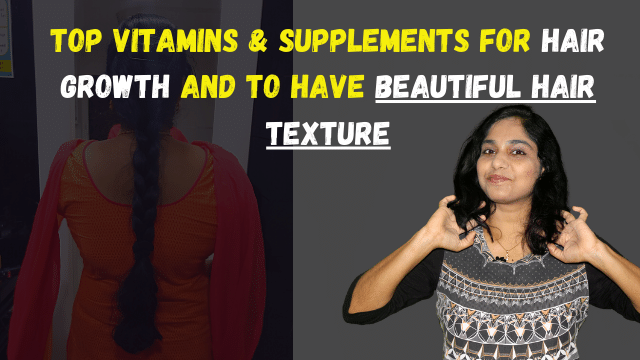
If you are interested in growing your hair, you should carefully watch what you eat. Most people make sincere attempts on treating their hair externally to promote growth.
I agree that it is highly important to treat your hair externally.
Things like oiling, deep oil massage, hot oil treatment, hair masks (Aloe vera mask, Fenugreek mask, Hibiscus mask, Curd mask, and the like) and stuff like these help hair growth.
But an equally important another factor is giving your hair a good boost from within, by eating the right amount of “stuff” needed for good hair growth. And the “stuff” happens to be vitamins!
If you take enough care to eat a well-balanced diet you would naturally get all the vitamins necessary for your hair growth.
But it is important that you first know what vitamins boost hair growth so you can either include more of them in your diet or add them as supplements!
Let’s discuss about the hair growth vitamins!
Biotin (Vitamin H)
This is one of the most popular vitamins when it comes to hair growth. And it works really well.
To prove the point, let me say this – I was able to grow my hair 3 inches extra by having Biotin supplement for about 6 months.
I already have waist length and I wanted it to be a bit longer.
So I took Biotin supplement (5mcg per day) and it worked really well. I stopped the supplement after 6 months.
But you need not always take this vitamin as a supplement (I did because I was so desperate to grow my hair a bit longer – now I laugh at myself on this).
So how can you include Biotin in your daily diet? Here are the food sources that can supply you with the needed amount of Biotin everyday:
- Carrots
- Banana
- Liver
- Almonds
- Cauliflower
- Salmon
- Cheese
- Avocados
- Mushroom
- Sunflower seeds
- Soybeans
- Cooked eggs (raw eggs have a Biotin inhibitor. Cooking deactivates it)
- Brown Rice
- Oats
- Lentils
- The thing is that you are most likely eating any (or many) of these foods on a daily basis. But Biotin is present in very small amounts in these foods. So you should make sure you get enough of the foods to balance your Biotin in take.
If you are losing hair then it could be a signal from your body that your Biotin levels are low and you might want to consider Biotin supplements (but be aware there could be other reasons for your hair loss too!).
Those who have had weight loss surgery or resectioning of the stomach and intestines are most likely to suffer from Biotin deficiency and as a consequence, will experience hair loss.
In such a case it is advisable to take Biotin supplement.
Biotin not only helps with hair growth but also makes your hair healthy and gives it a good texture.
Since Biotin increases the elasticity of your hair, it is less likely to break and doesn’t dry up!
So yes, Biotin is a hair friendly vitamin, but make sure you don’t overdo it. Do not exceed 100mcg in your daily dose for adults or adolescents.
Vitamin B
This includes the combination of B complex vitamins.
And, in general B complex vitamins help maintain a healthy body. But when it comes to hair, B complex vitamins do much more than that!
For instance, vitamins B1, B2 and B3 help with nourishment of hair. If you are losing hair, then B12 should help you keep hair loss in check!
And if you suffer from the presence of dandruff in your scalp (which in turn will lead to hair loss), vitamin B6 will help you get rid of dandruff.
If you have serious hair loss issues, taking a B complex supplement will help you. But be sure to consult your doctor before you do so!
Pantothenic Acid
This is vitamin B5 present in the B complex group of vitamins – I highly doubt Pantothenic Acid sold separately as a “vitamin”. But it comes with any B complex group of vitamins.
Almost all whole grains, legumes, fruits, animal meat and eggs contain Pantothenic Acid (PA).
And if you want to take it as a supplement, any vitamin B complex tablet has it!
PA helps in general with natural hair loss (like hair loss due to ageing).
It also conditions your hair so it looks healthy and beautiful. It helps keep your hair flexible and makes your hair shiny too!
Inositol
This vitamin is also part of the B complex group. It generally helps with maintaining healthy cell membranes.
Here’s a good news – your body already produces Inositol while breaking down glucose.
But you can also get it from the diet you take; foods like beans, whole grain bread and citrus fruits have a decent share of Inositol.
It has been recently proved that Inositol can help with reducing hair loss. But you cannot rely entirely on Inositol for your hair loss issues!
Apart from helping you with maintaining healthy cell membranes and reduce hair loss, Inositol also helps you with insomnia.
Basically it puts you to good sleep which in turn cools your head and promotes healthy scalp and hair!
Vitamin D
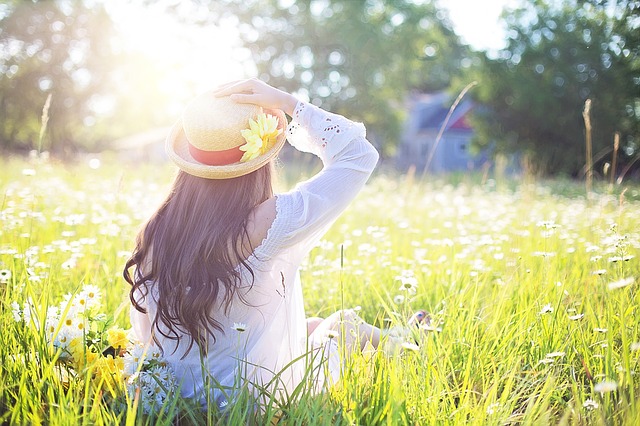
This one is a popular (notorious?!) vitamin whose deficiency can be linked to most of the illnesses reported!
This is because even though vitamin D doesn’t directly relate to illness, it controls other vitamins and their absorption through vitamin D receptors.
In general if you keep your vitamin D levels good, you should be fine. Foods that are rich in vitamin D are:
- Dairy products
- Egg yolk
- Cheese
- Liver
- Cereals
- Soy milk
- Fatty fish
Folic Acid
This is a popular prenatal vitamin. Folic acid supplements are usually prescribed when one is pregnant or is trying to get pregnant.
In the case of pregnancy, Folic acid helps with reducing the birth defect risk called neural tube defect in foetus.
But folic acid also helps with hair growth. Folic acid promotes tissue growth and cell functioning and that is how it works good for hair growth.
Besides, a deficiency in Folic acid might lead to a medical condition that prevents you from absorbing nutrients – and this includes nutrients necessary for hair growth (apart from other severe effects).
Folic acid is generously available in citrus fruits, dark leafy vegetables, dried beans and fatty fish like Salmon.
So don’t think that Folic acid is only for pregnant women and don’t miss out to get your share of Folic acid!
Vitamin A
Just because I’ve listed Vitamin A as the last item in the list, it doesn’t mean it is any least compared to the others.
In fact this vitamin is one of the most crucial factors to keep your scalp “friendly” for hair growth!
This Vitamin moisturises your scalp and also is rich in antioxidants.
This prevents the scalp from drying out. Vitamin A helps create a supportive scalp to keep your hair healthy.
Following are the foods rich in Vitamin A:
- Milk
- Papaya
- Mango
- Spinach
- Egg yolk
- Liver
So don’t forget to get your share of Vitamin A to have a healthy hair.
Vitamins for hair growth!
[click_to_tweet tweet=”Do vitamins help with hair growth? #hairgrowth #hairgrowthvitamins” quote=”Do vitamins help with hair growth?” theme=”style4″]
Yup these vitamins can help a lot with growing your hair. Which is why it is important hat you eat healthy.
By eating a well-balanced, health diet, you can make sure that you get enough of all these vitamins.
Unless you have a serious health condition that keeps you from absorbing the vitamins, you should be getting a good supply of these vitamins if you eat a well-balanced diet.
But if you are still concerned with your hair loss (or not enough growth) you can take any of these vitamins as supplements – however make sure you consult your doctor before doing so!
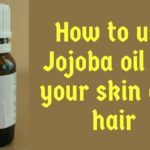
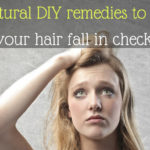
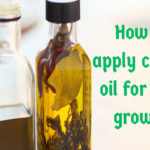

Thanks for this valued and informative post on hair growth vitamins. Nice Blog!